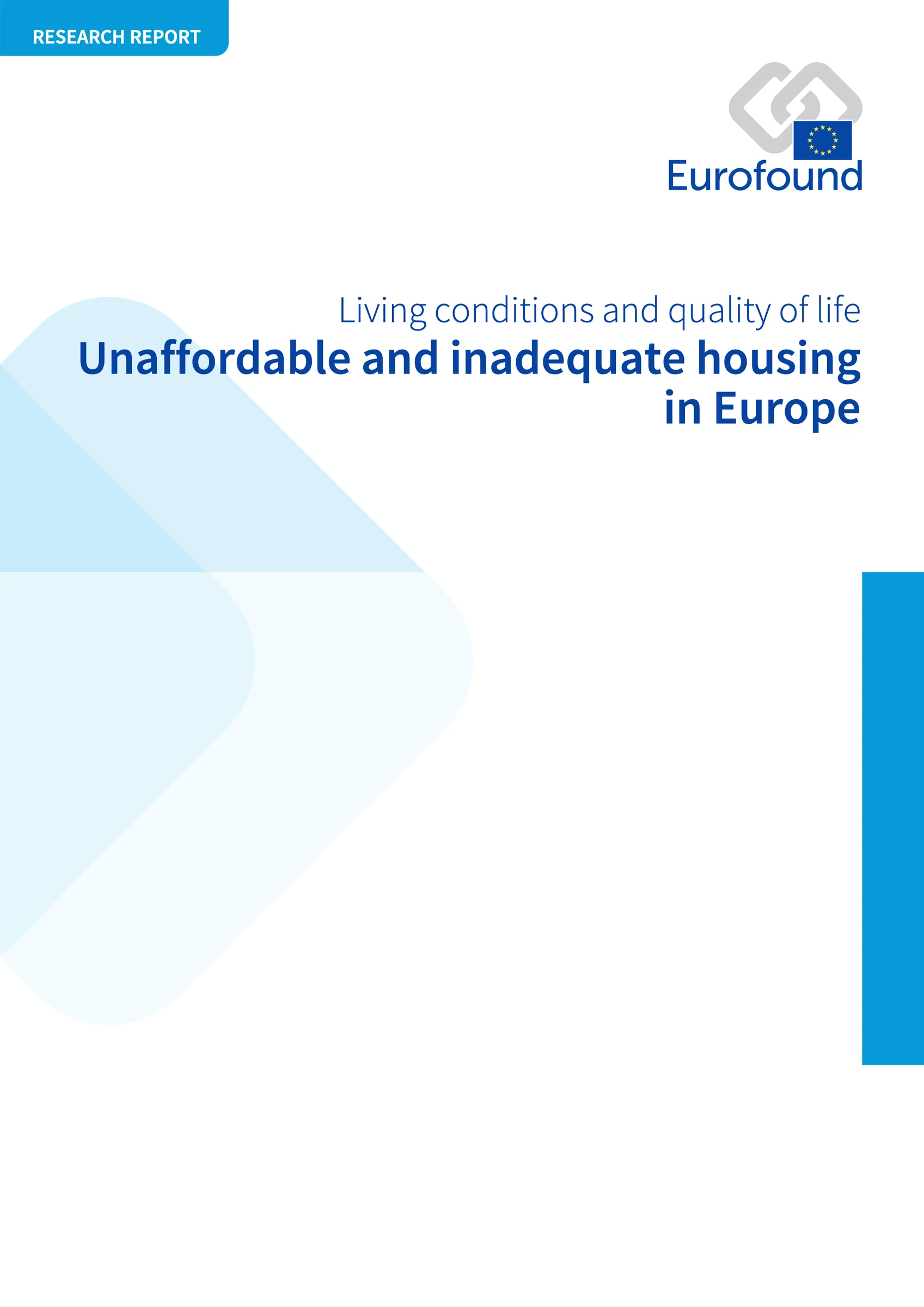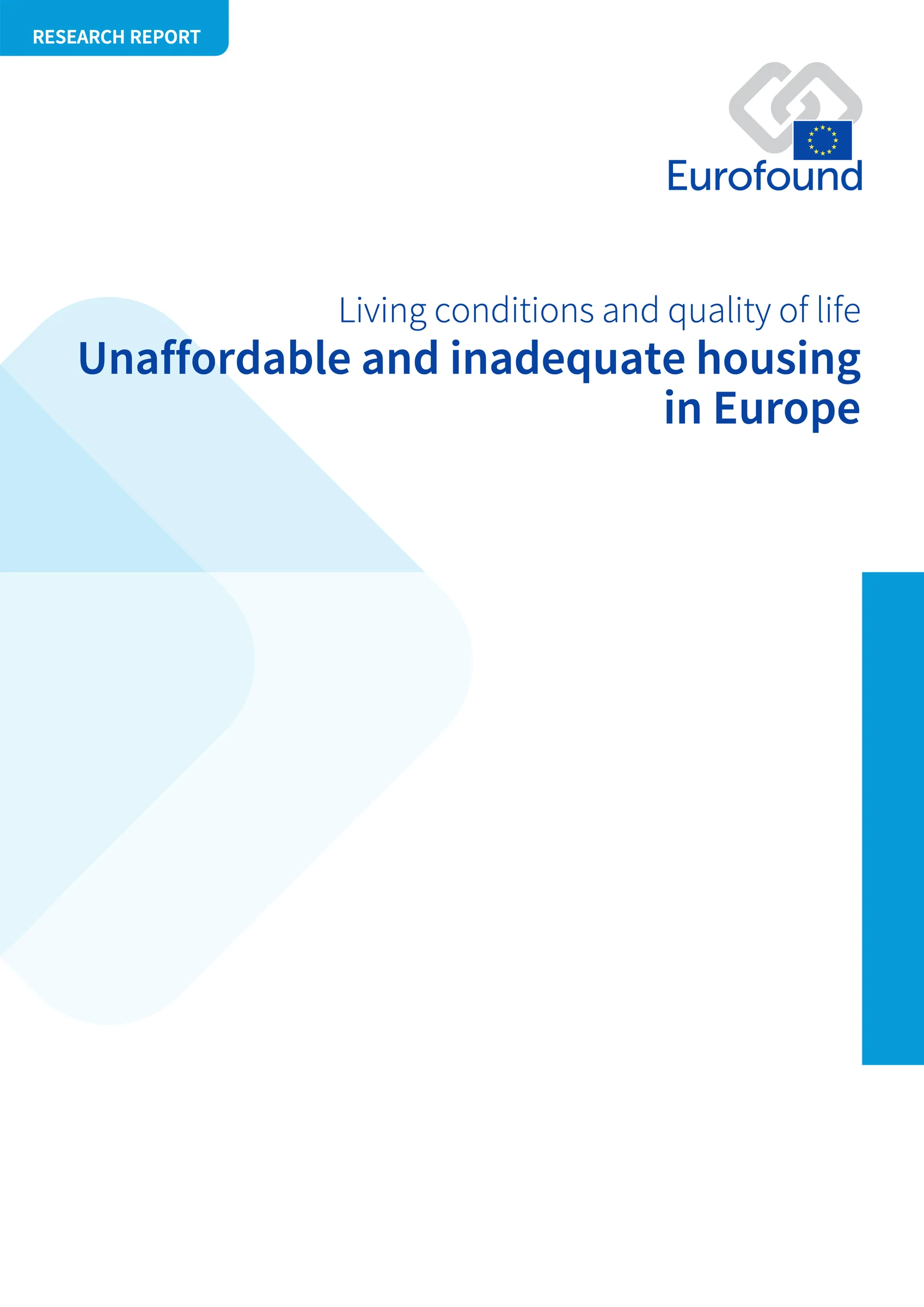AI-Generated Summary
Context
This research report, published by Eurofound, addresses the pressing issue of unaffordable and inadequate housing in Europe. The authors, Hans Dubois and Sanna Nivakoski, along with contributions from a network of experts, analyze living conditions and quality of life across EU member states. The report highlights the connection between housing issues and broader social, economic, and health impacts.
Key Findings
The report reveals that homeownership in the EU has been declining, particularly among young people, while rental costs have significantly risen. From 2010 to 2019, the share of income spent on housing increased for tenants, from 28% to 31%, while homeowners experienced a slight decrease. Approximately 46% of private rental market tenants feel at risk of eviction due to financial constraints, highlighting the precarious situation many face.
Housing Problems
Many individuals in the EU face housing exclusion, insecurity, and inadequacy. Homelessness is a growing concern, with an estimated 700,000 people sleeping rough or living in temporary accommodations. Young adults increasingly live with their parents due to high housing costs and reduced financial security, with the age at which individuals leave the parental home rising from 26 to 28 between 2007 and 2019.
Policy Context
The United Nations Universal Declaration of Human Rights recognizes housing as a fundamental right. The European Pillar of Social Rights emphasizes access to social housing and support for vulnerable populations. The report discusses various policy initiatives aimed at addressing housing exclusion and improving housing conditions, including Housing First programs targeting the homeless.
Financial Support and Housing Assistance
The report identifies significant disparities in access to housing benefits across EU member states. For example, approximately 21% of tenants in France receive rent subsidies, compared to less than 2% in countries like Romania and Cyprus. The report underscores the need for improved support mechanisms for low-income tenants and the importance of addressing issues related to rental affordability.
Inequalities in Housing
Inequalities in housing satisfaction exist, with people in the lower income bracket reporting lower levels of satisfaction with their homes compared to those in higher income brackets. The report reveals that poor energy efficiency and inadequate living conditions contribute to health problems and decreased quality of life, emphasizing the need for housing policies that ensure adequate living conditions for all.
Recommendations for Sustainable Housing
The report provides several policy pointers aimed at improving housing conditions. It advocates for the scaling up of Housing First initiatives, better support for vulnerable tenants, and the necessity of rent controls to prevent excessive rent increases. Additionally, it stresses the importance of addressing energy efficiency in housing to promote sustainability and reduce living costs.
Conclusion
In summary, the report by Eurofound provides a comprehensive overview of the housing challenges faced in Europe, advocating for targeted policies to address the issues of affordability, adequacy, and sustainability in housing. By highlighting the interconnectedness of housing with health, well-being, and social inclusion, the report serves as a critical resource for policymakers and stakeholders aiming to improve living conditions across Europe.

